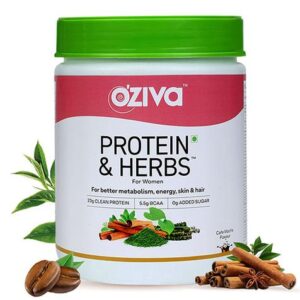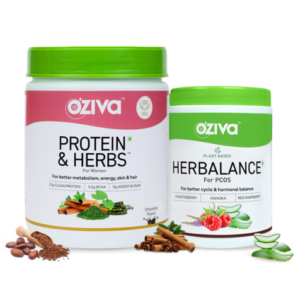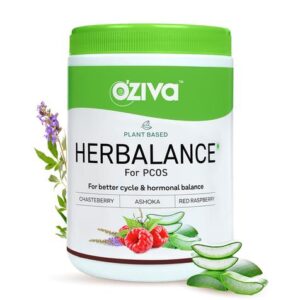You might have heard of Polycystic Ovarian Syndrome (also known as PCOS). It is a hormonal disorder that is present in 1 in every 5 women of women within reproductive age. No one knows the exact cause of PCOS, but experts have put it down to a few reasons – lifestyle, hormonal imbalance, or genetics.

Some PCOS symptoms include fertility issues (or difficulty conceiving or getting pregnant naturally), excessive facial hair growth, acne or inflammation, and irregular menstrual cycles. A woman can be diagnosed with PCOS at any time, but the most common age of diagnosis is between her 20s and 30s.
PCOS is a syndrome that does not affect all women the same way. There are many types of this syndrome that a person might experience. Each type differs wildly in terms of symptoms and causes. Let’s take a quick rundown of some of the types of PCOS and how to treat each one.
Type 1: Insulin Resistance PCOS
According to many nutritionists, 70 percent cases are usually a type of insulin resistance PCOS. This happens when the cells become numb to the effects of insulin. This leads to a condition called insulinoma, which then leads to PCOS. Symptoms of insulin resistance PCOS include sugar cravings, additional sudden weight gain, fatigue, acne and sudden hair growth or loss.
If you are diagnosed with insulin resistance PCOS, treatments include regular exercise and a balanced diet. avoid foods high in sugar and carbohydrates. Stress relief and a good night’s sleep will help manage insulin levels. Take PCOS supplements that contain chromium, magnesium and inositol or myo-inositol.
How to know if I have Insulin Resistance PCOS?
As a first step if you see any of the above symptoms, your doctor might only test your HbA1c or glucose levels to identify this type of PCOS. This is actually only an indicator of your blood sugar levels. Then, a test for fasting insulin should be done. “Normal levels of fasting insulin are less than 10 mIU/L (60pmoL/L). If your levels are higher, your doctor might recommend a treatment.
Type 2: Adrenal PCOS
Adrenal PCOS can arise as a result of a stressful period in your life. Only 10% of PCOS patients can have Adrenal PCOS.
Indicators of Adrenal PCOS include persistent anxiety, feelings of chronic stress, (indicated by high levels of cortisol) and high DHEA-S levels.
How do I know if I have Adrenal PCOS?
The first step would be to visit an endocrinologist or any other hormone specialist. They will test for high levels of androgens in the body and then for a woman’s DHEA-S levels.
To reduce your stress levels in adrenal PCOS, try out yoga, meditation and at least 7-8 hours of sleep in a night. Avoid doing high-intensity exercises. Take PCOS supplements that contain Magnesium, Vitamin B5 and Chromium.
Type 3: Inflammatory PCOS
The main causes of inflammatory PCOS are chronic inflammation. This can happen due to a poor diet or unhealthy levels of testosterone in the body. Some of the symptoms of inflammatory PCOS include acne, sudden and unexplained weight gain, joint pain, and skin issues like eczema which cause harsh marks on the face.
How to know if I have inflammatory PCOS?
On a blood test, you might see raised markers of inflammation. These include high CRP (C reactive protein) above 5. While this is the main test, other tests like fasting glucose and insulin (for insulin resistance PCOS) might also be useful as these levels can be affected by inflammation.
To manage this type of PCOS, maintain good gut health by taking supplements that help balance gut bacteria. You will also need to focus on improving digestive enzymes and avoiding foods that trigger inflammation (refined grains like white bread, pasta, snacks like chips and pastries, sodas and fried foods).
Take strong antioxidants like Vitamin C, Vitamin E, and Omega-3 fatty acids.
Type 4: Post-Pill PCOS
Post-Pill PCOS occurs only if you stop the intake of oral contraceptive pills. These pills stimulate progesterone in the body, and once they are stopped, you might encounter this type of PCOS. Taking the pills again can stop the issue temporarily, however it may later worsen the condition as well. Symptoms include acne, weight gain, menstrual changes and fertility difficulties.
How do I know if I have post-pill PCOS?
There is no separate diagnosis for Post-Pill PCOS as it is a matter of realisation of when you stopped the pill. However, a normal PCOS test can help you out with the first step. An ultrasound will use sound waves to scan you for problems in your ovaries and uterus. A doctor would diagnose you with PCOS if you have two of the three primary symptoms – irregular periods, ovarian cysts and high androgen levels. In post-pill PCOS there is no insulin resistance. Then it is a matter of working backwards to realise if the oral contraceptives are responsible.
The good news is that Post-Pill PCOS is both temporary and reversible. A good night’s sleep and a low-stress environment will make all the difference here. Take PCOS supplements containing nutrients like Magnesium, Vitamin E, Vitamin B6 and Zinc.
Treatment
While PCOS may not have a permanent cure, their symptoms are definitely manageable and to an extent that it would almost feel like you no longer suffer from it. A big part of the treatment is lifestyle changes, including right nutrition. A great option for this is OZiva HerBalance for PCOS. This is a clean, plant-based solution that provides relief for many PCOS symptoms in one. It contains 21 clean, plant-based wholefoods including Shatavari which helps boost estrogen levels, Gokhru which helps stimulate ovulation, and aloe vera which helps cleanse skin and control acne.
Many market products only provide a solution to one PCOS symptom. You might then have to take multiple medicines to manage all symptoms, and this might create a pill dependency. If you are facing symptoms of any of these four types of PCOS, an all-in-one supplement like OZiva HerBalance for PCOS can also help you avoid pill dependency and manage your symptoms easily.
This PCOS supplement is Certified Clean by the US-based Clean Label Project. It is also Certified Vegan by the Vegan Society of UK.
To find out more about types of PCOS, see this post.
Last modified: November 11, 2022





